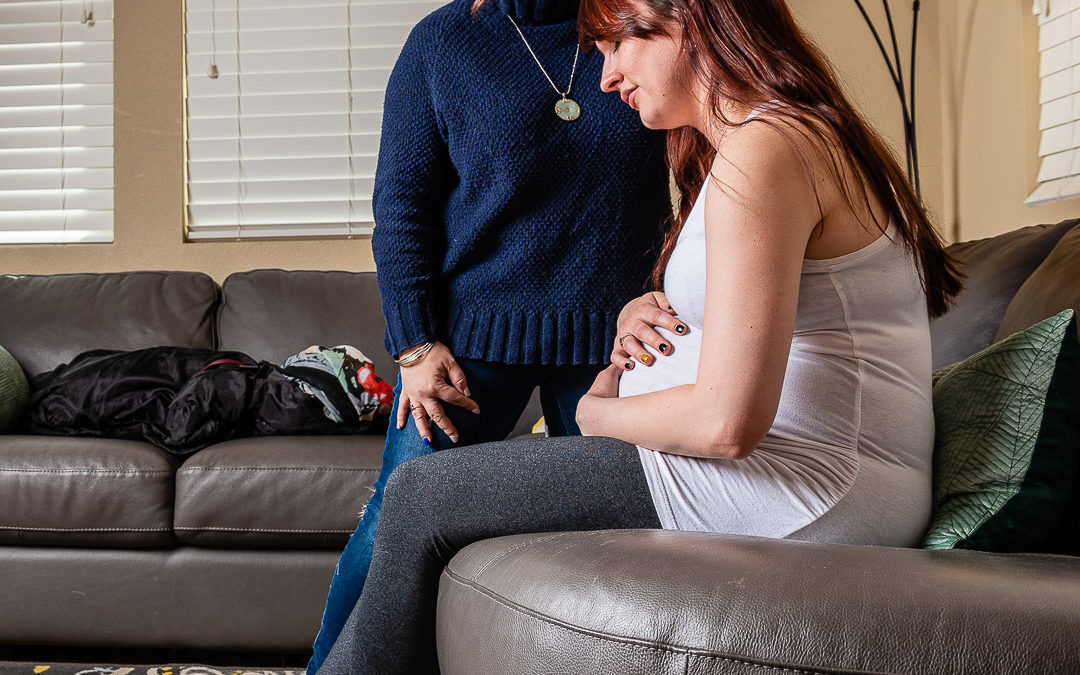Doulas are pretty common now (and people seem to fully understand we don’t carry rain sticks or anything) but I still get the occasional funny look when I tell people what I do.
If you’re also wondering exactly how a doula helps you, here are 9 ways we’re your wing woman for a better birth:
1. Help you understand your birth options. A doula can meet with you prenatally to talk about your goals and expectations for the big day and talk about how you will best work together. She can note your preferences in a birth plan, which you can then review with your care provider and bring with you on the day you go into labor.
2. Help you decide when to go to the hospital or birth center. You’ve probably heard that labor comes in fits and starts or of couples being sent home from the hospital because they’ve arrived too early. Your doula helps you avoid frustration and disappointment by joining you at home to labor there as long as possible, while still getting to your birth place in a safe amount of time.
3. Support your partner in helping you. For many families, birth is the first time a partner has been around a laboring woman and the partner may feel unsure of how to help. A doula assists your partner in supporting you by providing reassurance and encouragement. She can also help your partner take care of himself or herself s/he can take better care of you.
4. Provide physical comfort. Remember all those handy tips for labor you learned in your classes? Well, there’s a good chance you and your partner will forget literally everything you learned once you’re in labor land. Your doula can guide your partner in helping you labor by reminding him or her of comfort measures to try.
5. Help you interpret information and ask questions. Labor and birth can be nerve-wracking because we can’t predict or control the outcome. As decisions need to be made with your care provider, a doula guides you in asking questions and understanding information so that you can feel confident in your decision-making.
6. Help with breastfeeding. If you choose to breastfeed, your doula stays after the birth to help you establish the first latch and feel more comfortable with feeding. Bonus! As a Certified Lactation Counselor (CLC) I can give you more in-depth support at home as well.
7. Be the “thermostat” (not the thermometer). Labor and birth is a physically demanding process, but it’s also very emotional for both mother and partner. A doula can be the emotional thermostat for the room: helping to set a tone of calm even if things don’t go according to the birth plan.
8. Manage the family. If you’re worried about a waiting area full of family members, a doula can act as the “ambassador” for your labor room. She can update the family by text and sit with them periodically to answer their questions, update them with what’s happening during labor and let them know how mom is doing.
9. Work with staff. During the birth your doctor, midwife and nurse will likely be attending to other laboring mothers as well, so their time may be split or they may change out if they reach the end of a shift. A doula supports your labor continuously and is there to work collaboratively with your medical care team. She can help make sure your immediate needs are met so that your care providers can focus on the medical needs of you and your baby.
I got you! Let’s chat more about how I can help you specifically. Whether you’re in Northern Colorado or want to work remote I’m here to help your birth experience be a positive one.
Julianne Curtis, CLC, SBD



Recent Comments